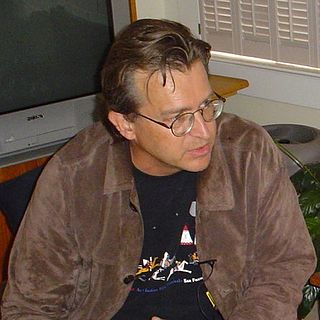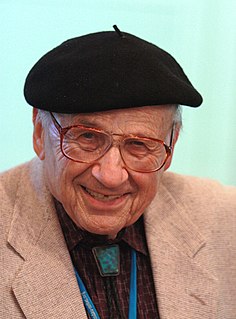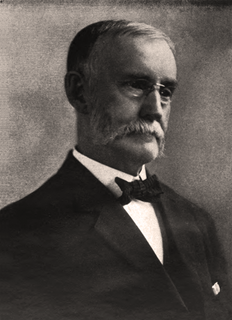A Quote by Phil Cousineau
What is sacred is what is worthy of our reverence, what evokes awe and wonder in the human heart, and what, when contemplated, transforms us utterly.
Related Quotes
Even though the discples were not aware of it, the presence was with them while they were reviewing the scriptures together on the road. Henceforth, we will catch only a fleeting glimpse of it -- in the study of sacred writings, in other human beings, in liturgy, and in communion with strangers. But these moments remain us that our fellow men and women are themselves sacred; there is something about them taht is worthy of absolute reverence, is in the last resort mysterious, and we will always elude us.
I am very much a scientist, and so I naturally have thought about religion also through the eyes of a scientist. When I do that, I see religion not denominationally, but in a more, let us say, deistic sense. I have been influence in my thinking by the writing of Einstein who has made remarks to the effect that when he contemplated the world he sensed an underlying Force much greater than any human force. I feel very much the same. There is a sense of awe, a sense of reverence, and a sense of great mystery.
We must embrace our differences, even celebrate our diversity. We must glory in the fact that God created each of us as unique human beings. God created us different, but God did not create us for separation. God created us different that we might recognize our need for one another. We must reverence our uniqueness, reverence everything that makes us what we are: our language, our culture, our religious tradition.
O the anguish of that thought that we can never atone to our dead for the stinted affection we gave them, for the light answers we returned to their plaints or their pleadings, for the little reverence we showed to that sacred human soul that lived so close to us, and was the divinest thing God had given us to know!
Religion, according to Alfred North Whitehead, is a phenomenon that begins in wonder and ends in wonder. Feelings of awe, reverence, and gratitude are primary, and these can never be learned from books. We gain them from sitting high on a cliff side, gazing at the sea, lost in reverie and listening to the laughter of children.
The human venture depends absolutely on this quality of awe and reverence and joy in the Earth and all that lives and grows upon the Earth. As soon as we isolate ourselves from these currents of life and from the profound mood that these engender within us, then our basic life-satisfactions are diminished. None of our machine-made products, none of our computer-based achievements can evoke that total commitment to life.
O most sacred, most loving heart of Jesus, thou art concealed in the Holy Eucharist, and thou beatest for us still.... Thou art the heart of the Most High made man.... Thy Sacred Heart is the instrument and organ of Thy love. It did beat for us. It yearned for us. It ached for our salvation. It was on fire through zeal, that the glory of God might be manifested in and by us.... In worshipping thee I worship my incarnate God, my Emmanuel
As he loves us, he would have us love others. We say men are not worthy of such friendships. True, they are not. Neither are we worthy of Christ's wondrous love for us. But Christ loves us-not according to our worthiness-but according to the riches of his own loving heart! So should it be with our giving of friendship-not as the person deserves-but after the measure of our own character.
You are worthy! Let those words sink deep into your heart. You are worthy. Life can get overwhelming for us, as our busy schedules keep us on our toes. Sometimes we forget that we need to intentionally slow down, take a deep breath, and remind ourselves of our purpose, the very foundation of why we do what we do. When we neglect to quiet our souls and rest in God's amazing grace, we miss out on the intimate opportunities where God assures us of our worthiness, clarifies our purpose, and strengthens us to endure each day.



































